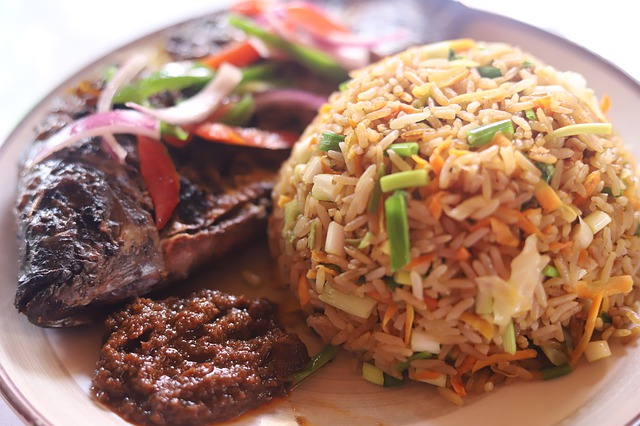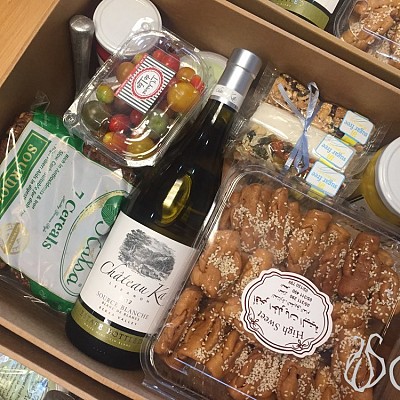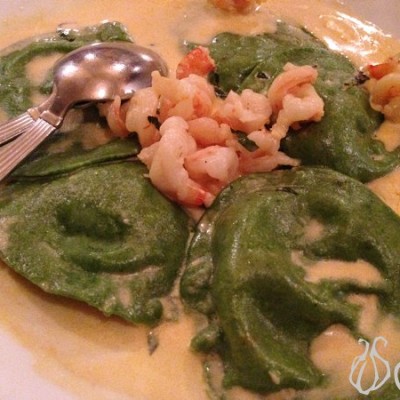Kuwait is one of the countries with the strongest economies in the world. At the same time, it is one of the most liberal Islamic countries, which makes it a top destination for expats from around the world. Kuwait is situated at the northern edge of Eastern Arabia, so it makes sense that its cuisine is a mix of Persian, Lebanese, Indian, and Mediterranean influences. Since no cultural experience can be complete without tasting the traditional meals of the newly visited place, let's dive in and explore this expat guide to Kuwaiti cuisine.
.jpg)
The heritage
Back in the day, Kuwaiti inhabitants were nomads who moved from the inner part of the country towards the seaside in search of food. Once they reached the water, they mostly became fishermen, which changed their eating habits to some extent. Fish became the predominant ingredient, even though they still used meat in their everyday diet. The historical events, such as the Persian rule for some time, left their marks and together with the influences we have today, they shaped what is now considered to be Kuwaiti cuisine. Let's not forget that nowadays, almost two-thirds of the Kuwaiti workforce consists of expats.
The etiquette
The decision to move to another country is a big one and it should always be made with care. There are so many factors to take into consideration before hiring the right movers. First, you should learn something about the country's culture and history, in order to get ready for moving from or to Kuwait with ease. Knowing the dining etiquette of the country you are visiting is more important than knowing about its culinary achievements. For instance, in Kuwait:
- it is rude to turn down food or drinks offered to you;
- you should try to arrive on time since being late is considered offensive;
- don't forget to take your shoes off before entering somebody's home;
Fish is the predominant ingredient
Fish and seafood, in general, are the most popular ingredients in Kuwaiti cuisine. Hamour, sobaity, safi, and zubaidi are the most common kinds that are paired with various side dishes usually made of rice. Fish is mainly fried or grilled and spices and herbs are there to enrich the flavor.
.jpg)
Mutabbaq Samak is one of the specialties definitely worth trying. It is usually made of zubaidi, which is the national fish of Kuwait, and rice cooked in spicy fish stock. Speaking of fish, various fish sauces are available and often consumed with various flatbreads that are also a specialty of Kuwaiti cuisine. Murabyan is another rice dish, but this one is made with shrimps that can be found in abundance in Kuwait.
Pitas and bread are very popular in Kuwait
Even though they did not originate from this country, various types of bread are the essence of almost every meal in Kuwait. Bakeries can be found on every corner and they are usually run by Irani bakers. Khubz is the most popular, traditional flatbread served with many dishes. It is shaped to be flat and oval and baked in high-temperature ovens. Khubz can be used as a wrap filled with meat and vegetables, or it can be consumed with various sauces and dippings.
.jpg)
Three types of fatayer bread are also popular in Kuwait. The one they fill with minced meat is called Fatayer Lahme and it is somewhat similar to English meat pie or to Manakish el Hajj. Fatayer Jibna is stuffed with cheese, while Fatayer Zaatar is a name reserved for a pie with herb stuffing. The third one is very popular in spring since that is the season for collecting the main ingredient - wild thyme.
Kuboos is Arabic pita bread traditionally served with hummus, the chickpea spread that is now globally popular. Original hummus has a strong garlic aroma, and it is used as a starter dish, an addition to baked or fried vegetables, or as a spread for various sandwiches.
All sorts of bread are popular with vegans. They often choose the spreads combined with flatbreads and many herb pies to be their favorites.
Meat is cooked and served in many combinations
Kuwaiti cuisine is rich in meat and poultry. The combinations of meat and seafood are not rare and that is one of the specifics of this region. Here are some of the popular meat dishes expats should try when moving to Kuwait:
- Jireesh - this is basically wheat porridge cooked with lamb or chicken. The spices are a must, together with tomatoes or some other vegetables. The taste can be mild or spicy, depending on the choice of herbs the cook uses for this specialty.
- Harees - wheat is cooked with meat, then everything is mashed and topped with cinnamon sugar. The dish may not be overly visually appealing, but since it's rather filling, it is very popular in winter.
- Shawarma - one of the most popular dishes from Kuwaiti cuisine known globally. It is often compared to the Turkish döner kebabs, but the combination of spices is what makes this dish different from the Turkish specialty. It is prepared by sticking large chunks of meat (lamb, turkey, chicken, beef, or a combination of any) on a spit and grilling them for hours. The thin slices of meat are then cut from the sides and served with bread, pickles, tahini, and hummus-based spreads.

Fruits and sweets are also an important part of Kuwaiti cuisine
Luqaimat is one of the most popular Kuwaiti desserts. It is crunchy on the outside and soft on the inside, who doesn't like that? Fruit salads, pies, and custards are often served as well. One of the most popular fruits that can be found everywhere in Kuwait is the date. People dry it and use it for the preparation of jams, dippings, sauces, and all sorts of desserts.
Since the consumption of alcohol is illegal in Kuwait, there is a wide range of non-alcoholic beverages and soft drinks available on the market. Fresh fruit juices are very popular too.
We hope you found this expat guide to Kuwaiti cuisine useful. Explore the etiquette and get ready to enjoy some traditional Kuwaiti specialties.
Photos used:
https://pixabay.com/photos/falafel-food-pitta-bread-1781656/
https://pixabay.com/photos/jollof-jollof-rice-ghanaian-dishes-4659747/
https://pixabay.com/photos/shawarma-kitchen-cook-1564906/
https://pixabay.com/photos/hummus-pita-bread-food-pita-4544056/
https://pixabay.com/photos/dates-palm-tree-mediterranean-fruit-580985/






































